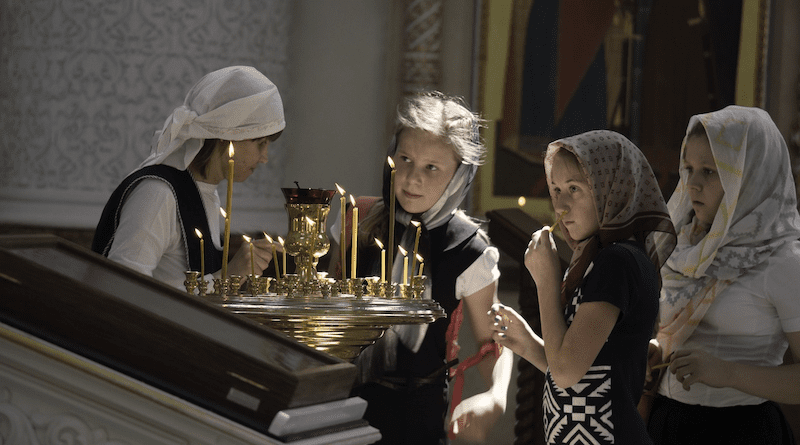Russia: Only 10 Percent Of Population Actively Religious Divided Equally Among Orthodox Christians, Muslims, And Protestants – OpEd
By Paul Goble
Only 10 percent of the population of Russia today is actively religious, with that small fraction divided equally among Orthodox Christians, Muslims and Protestants, Nikolay Mitrokhin says. The remainder are indifferent or even increasingly hostile to religion, a trend that will increasingly set the weather in that country.
“Today,” the specialist on religion in Russia who teaches at the University of Bremen says, “there is a decline in institutional religiosity on all fronts. That is the number of people involved is not growing but rapidly falling,” a pattern that will only accelerate as urbanization proceeds (polit.ru/article/2023/05/23/mitrohin/).
That trend, Mitrokhin continues, is somewhat hidden by polls showing the same high levels of attachment to Orthodoxy as in the past. But those polls reflect the fact that people give the answers they think the authorities want; and the Putin regime wants people to identify as Orthodox because that means for it that they are attached to the traditional values it favors.
Most religious organizations in Russia now are in rural areas, and they are very small, involving only 15 to 20 people, the specialist on religion in Russia continues. They are losing members as people leave the villages and lack the ability to build new churches or mosques or to attract more people to attend existing ones.
Over the last two decades, federal propaganda in support of religion as a traditional value notwithstanding, there has been a very rapid growth in anti-religious feelings among Rusisans, with ever more people intolerant of the actions of religious groups. It is now far easier to mobilize a protest against construction of a church than in favor it.
This trend has been greatest among Orthodox Christians, but it is affecting Muslims as well, especially as they move from rural areas into big cities and as their fertility rates decline. That suggests that even they will play a smaller role in Russian life in the past and that the religious question as such will decline as well.
Instead, what is likely is the growth of atheism and attacks on religious communities, “in the first instance against Orthodox” and especially after the current regime leaves the scene. In this situation, Muslims will gain elatively; and the real wild card is the Protestant one. For now, Protestants are trying to avoid attracting attention and the negative consequences that entails.

